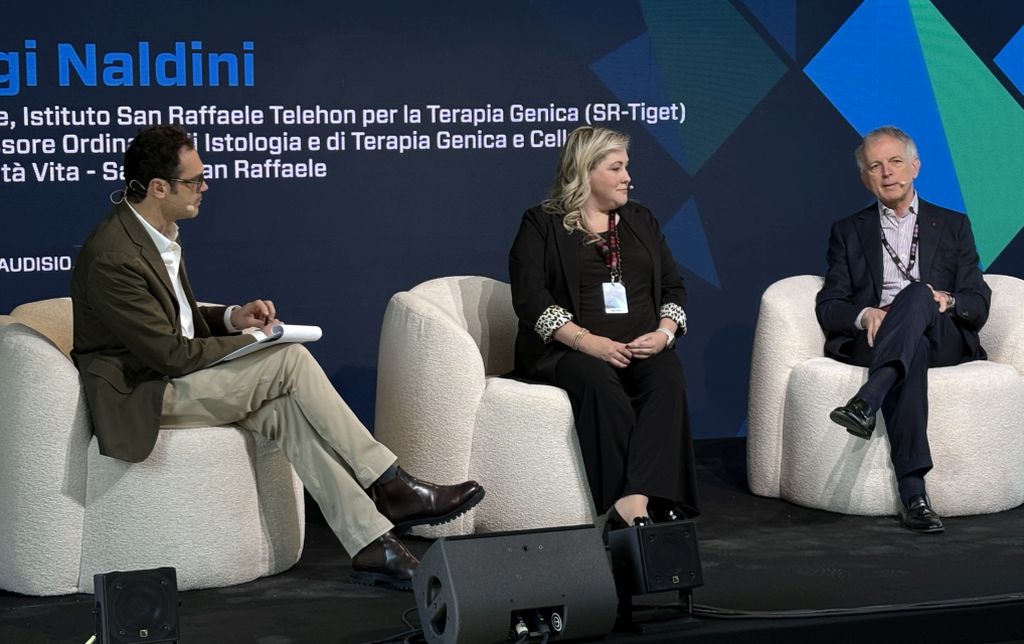MILAN (ITALPRESS) – Faced with increasingly important challenges in the world of health, finding new ways becomes paramount, starting by listening to patients and supporting research with investments and strategic partnerships. This is the focus of Bayer, which took part in the 2025 edition of “Wired Health,” an event organized today in Milan.
Among the panels featuring researchers and stakeholders, one frontier of particular interest is gene and cell therapies.
“This is a true innovation in medicine that allows us to treat diseases that were hitherto incurable because we can intervene in genes or modify a patient’s cells by, for example, correcting a genetic mutation or training immunity cells to better attack tumors,” said Luigi Naldini, Director of the San Raffaele Telethon Institute for Gene Therapy, calling this field of medical research “a clinical reality; there are now thousands of patients treated for both genetic diseases and forms of cancer with these therapeutic breakthroughs.”
Among the companies particularly active in this area is Bayer. “We have focused on cellular gene therapies as a new frontier for innovation and for the treatment of important pathologies,” stressed Arianna Gregis, Country Head Pharmaceuticals Bayer Italy. “Just in the last few years we have invested more than 3.5 billion euros to acquire two platforms for gene and cell therapies called Blue Rock and ASKBio, which precisely want to bring excellence to this field.
“One concrete achievement is our commitment in the area of Parkinson’s disease. We know that many patients are still waiting for a cure, and both BlueRock and ASKBio are leveraging what are the gene and cellular potentials to find a concrete solution,” he added.
The results of this partnership were not long in coming, the most notable being the RMAT (Regenerative Medicine Advanced Therapy) designation to the experimental gene therapy for Parkinson’s developed by AskBio by the Food and Drugs Administration (FDA). This has allowed research to advance with BlueRock’s cell therapy on the one hand, and AskBio’s gene therapy on the other.
On Bayer’s part, the focus for research in this area has also been on possible applications of Artificial Intelligence, particularly to speed up processes.
“For Bayer, artificial intelligence is an accelerator of what the whole research and development process is. We have stated a very important ambition, to accelerate and thus reduce our R&D timelines by 40 percent by 2030,” Gregis explained. “In this context we can mention two important collaborations, one with a tech giant like Google and another with an American company called Recursion that wants precisely to exploit predictive mechanisms of machine learning to find new therapeutic targets and new therapies.
Specifically, from the collaboration with Recursion it was possible to “identify a new therapeutic target in just 18 months instead of the standard 42 usually required.”
Of course, the field of gene and cell therapies is also susceptible to challenges and stresses.
According to Naldini, “having made the proof of principle of these therapies, we need to keep them on the market in a sustainable way. They are not only transformative, but complex to produce and obviously very expensive. If there are few patients then, as in rare diseases, then these therapies are difficult to make economically sustainable. It’s a challenge for everyone because research has produced innovation and we have to keep it available and accessible to patients.”
“Making innovation means starting from listening to patients’ needs, and to do this we need to make valuable alliances with all those who are stakeholders in the health system in Italy and also in the world. So we stand alongside clinicians, universities, start-ups, political and institutional stakeholders to be able to imagine pathways of diagnosis and treatment where we put people at the center,” Gregis stressed.
– photo xh7/Italpress –
(ITALPRESS).

